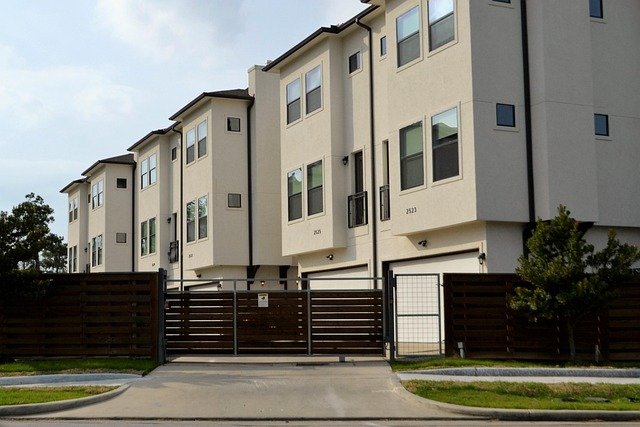Discover Why Rental Houses Are a Smart Choice in 2025
The rental housing market has evolved significantly, offering flexibility and modern amenities that appeal to a wide range of residents. From young professionals seeking urban convenience to families prioritizing space and community, rental houses provide options that align with diverse lifestyles. Understanding what makes these properties attractive in today's market can help you make informed housing decisions that suit your needs and budget.

Renting a house has become an increasingly popular choice for individuals and families across the globe. The landscape of rental housing has transformed dramatically, with property owners and management companies investing in upgrades, technology, and services that enhance the living experience. Whether you’re considering your first rental or exploring alternatives to homeownership, understanding the current rental market reveals compelling reasons why this option continues to gain traction.
What Makes Today’s Rental Houses Stand Out?
Modern rental houses distinguish themselves through thoughtful design, updated amenities, and flexible living arrangements. Many properties now feature open floor plans, energy-efficient appliances, and contemporary finishes that rival newly constructed homes. Property owners recognize that tenants seek more than just shelter—they want comfortable, functional spaces that accommodate remote work, entertainment, and family life. Additionally, rental houses often include outdoor areas such as yards, patios, or gardens, providing private space that apartments typically cannot offer. The variety of available styles, from single-family homes to townhouses and duplexes, ensures that renters can find properties matching their specific preferences and household sizes.
How Do Technology and Management Enhance the Rental Experience?
Technology integration has revolutionized how rental properties operate and how tenants interact with their homes. Many rental houses now come equipped with smart home features including programmable thermostats, keyless entry systems, and app-controlled lighting. These innovations provide convenience while helping residents manage energy consumption more effectively. Property management has also evolved, with professional companies offering online portals for rent payments, maintenance requests, and lease documentation. Responsive maintenance services ensure that issues are addressed promptly, reducing the stress traditionally associated with renting. Communication between landlords and tenants has improved through digital platforms, creating transparency and efficiency that benefit both parties. Some properties even include high-speed internet infrastructure and security systems as standard amenities, recognizing the essential role connectivity plays in modern life.
What Are the Key Advantages of Renting a House?
Renting offers distinct advantages that appeal to various life stages and circumstances. Financial flexibility stands out as a primary benefit, as renters avoid the substantial upfront costs associated with home purchases, including down payments, closing costs, and property taxes. Maintenance responsibilities typically fall to property owners, freeing tenants from unexpected repair expenses and the time commitment required for home upkeep. Mobility represents another significant advantage—lease terms generally range from six months to one year, allowing renters to relocate for career opportunities, family needs, or lifestyle changes without the complexities of selling property. Rental houses also provide access to desirable neighborhoods that might be financially out of reach for purchase, enabling residents to enjoy quality schools, amenities, and community features. Furthermore, renting eliminates concerns about property value fluctuations and market volatility that homeowners face.
Exploring Pricing Lease Options and Added Benefits
Understanding rental costs and lease structures helps prospective tenants make informed decisions. Rental prices vary considerably based on location, property size, condition, and local market dynamics. Urban areas typically command higher rates than suburban or rural locations, while property features such as updated kitchens, additional bedrooms, or garage space influence pricing. Many landlords offer lease flexibility, including month-to-month arrangements after initial term completion, providing options for those with uncertain timelines. Added benefits often accompany rental agreements, such as included utilities, access to community amenities like pools or fitness centers in managed developments, or allowances for pet ownership with appropriate deposits. Some property owners provide incentives for longer lease commitments or offer move-in specials during slower rental seasons.
| Property Type | Average Monthly Range | Typical Features |
|---|---|---|
| Studio/1-Bedroom House | $800 - $1,500 | Compact living, suitable for singles |
| 2-Bedroom House | $1,200 - $2,200 | Family-friendly, moderate space |
| 3-Bedroom House | $1,600 - $3,000 | Larger families, multiple bathrooms |
| 4+ Bedroom House | $2,200 - $4,500 | Spacious, often includes yard |
Prices, rates, or cost estimates mentioned in this article are based on the latest available information but may change over time. Independent research is advised before making financial decisions.
Sustainability and Future-Ready Living
Environmental consciousness increasingly influences rental housing development and management. Many property owners invest in sustainable features such as solar panels, water-efficient fixtures, and improved insulation that reduce environmental impact while lowering utility costs for tenants. Green building certifications and eco-friendly materials appeal to environmentally aware renters who prioritize sustainability in their housing choices. Future-ready living extends beyond environmental considerations to include adaptable spaces that accommodate evolving lifestyle needs. Properties designed with flexible room configurations, dedicated home office areas, and robust technological infrastructure position renters to thrive in changing work and social environments. As climate concerns and remote work trends continue shaping housing preferences, rental houses incorporating these forward-thinking elements become increasingly valuable.
The rental housing market in 2025 reflects a mature industry responsive to tenant needs and societal shifts. With enhanced amenities, professional management, financial flexibility, and sustainable features, rental houses present compelling advantages for diverse populations. Whether you prioritize mobility, cost management, or access to modern conveniences, exploring rental options reveals opportunities that align with contemporary lifestyles and long-term goals.




